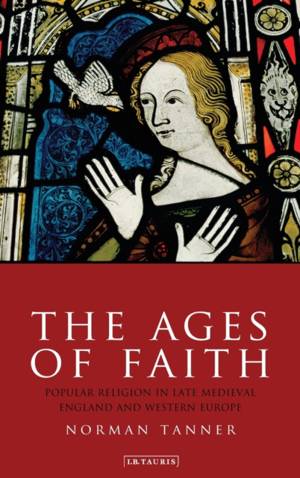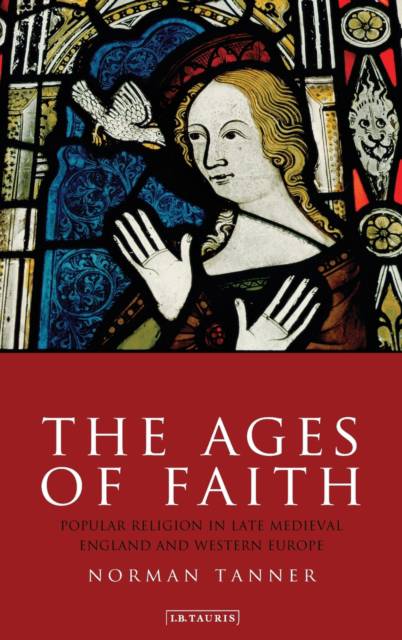
Bedankt voor het vertrouwen het afgelopen jaar! Om jou te bedanken bieden we GRATIS verzending (in België) aan op alles gedurende de hele maand januari.
- Afhalen na 1 uur in een winkel met voorraad
- In januari gratis thuislevering in België
- Ruim aanbod met 7 miljoen producten
Bedankt voor het vertrouwen het afgelopen jaar! Om jou te bedanken bieden we GRATIS verzending (in België) aan op alles gedurende de hele maand januari.
- Afhalen na 1 uur in een winkel met voorraad
- In januari gratis thuislevering in België
- Ruim aanbod met 7 miljoen producten
Zoeken
€ 271,45
+ 542 punten
Omschrijving
Christianity in the later Middle Ages was flourishing, popular and vibrant and the institutional church was generally popular - in stark contrast to the picture of corruption and decline painted by the later Reformers which persists even today. Norman Tanner, the pre-eminent historian of the later medieval church, provides a rich and authoritative history of religion in this pivotal period. Despite signs of turbulence and demands for reform, he demonstrates that the church remained powerful, self-confident and deeply rooted. Weaving together key themes of religious history - the Christian roots of Europe; the crusades; the problematic question of the Inquisition; the relationship between the church and secular state; the central role of monasticism; and, the independence of the English church - "The Ages of Faith" is an impressive tribute to a lifetime's research into this subject. But to many readers the central fascination of "The Ages of Faith" will be its perceptive insights into popular and individual spiritual experience: sin, piety, penance, heresy, the role of the mystics and even 'making merry'.
"The Ages of Faith" is a major contribution to the Reformation debate and offers a revealing vision of individual and popular religion in an important period so long obscured by the drama of the Reformation.
"The Ages of Faith" is a major contribution to the Reformation debate and offers a revealing vision of individual and popular religion in an important period so long obscured by the drama of the Reformation.
Specificaties
Betrokkenen
- Auteur(s):
- Uitgeverij:
Inhoud
- Aantal bladzijden:
- 256
- Taal:
- Engels
- Reeks:
Eigenschappen
- Productcode (EAN):
- 9781845117603
- Verschijningsdatum:
- 15/01/2009
- Uitvoering:
- Hardcover
- Formaat:
- Genaaid
- Afmetingen:
- 157 mm x 234 mm
- Gewicht:
- 544 g

Alleen bij Standaard Boekhandel
+ 542 punten op je klantenkaart van Standaard Boekhandel
Beoordelingen
We publiceren alleen reviews die voldoen aan de voorwaarden voor reviews. Bekijk onze voorwaarden voor reviews.









